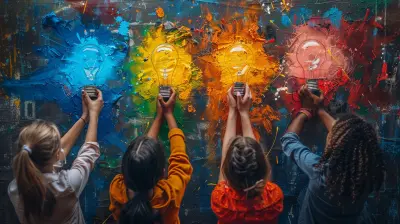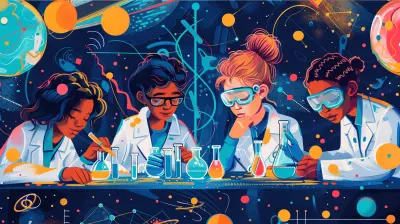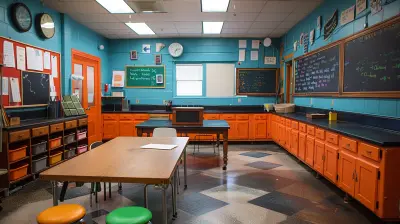Unlocking Creativity Through Music Education
26 October 2025
When was the last time you found yourself humming a tune and suddenly felt an idea spark in your mind? Music has a magical way of unlocking creativity, and incorporating it into education can work wonders. Whether it's playing an instrument, singing, or even just listening, music has the power to shape young minds and fuel their imagination.
In this article, we’ll dive deep into how music education can boost creativity, why it matters, and how students can benefit from it in ways beyond just musical skills.
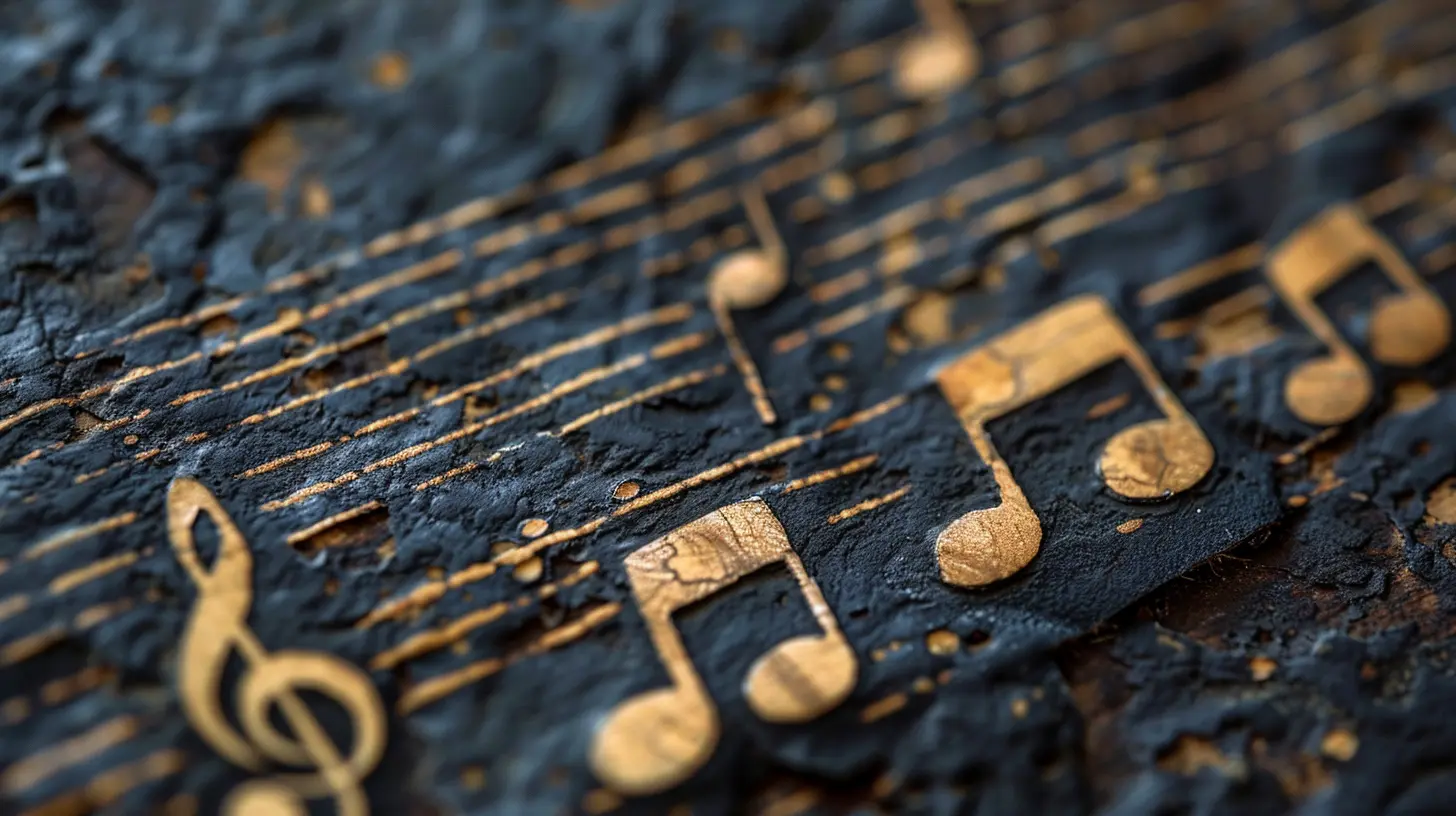
The Connection Between Music and Creativity
Ever wondered why some of the most creative geniuses—Beethoven, Mozart, and even modern artists like Beyoncé—have a deep-rooted passion for music? It's because music isn't just about melodies; it's about expression, rhythm, and innovation.Research suggests that engaging with music enhances brain function, particularly in areas responsible for problem-solving, critical thinking, and emotional intelligence. But how exactly does music unlock creativity?
1. Stimulates the Brain
Music activates various areas of the brain, particularly the right hemisphere, which is associated with creativity. When students engage in musical activities, their cognitive processes improve, allowing them to think outside the box.2. Encourages Emotional Expression
Music is an outlet for emotions. It helps students channel their feelings into something productive, whether through playing an instrument, writing lyrics, or composing a melody. This emotional release fosters originality and artistic expression.3. Enhances Problem-Solving Skills
Creativity is not just about artistic ability; it's also about problem-solving. Learning music requires students to figure out patterns, structures, and techniques—just like solving a puzzle. This kind of thinking translates into other areas of their lives, making them more innovative thinkers.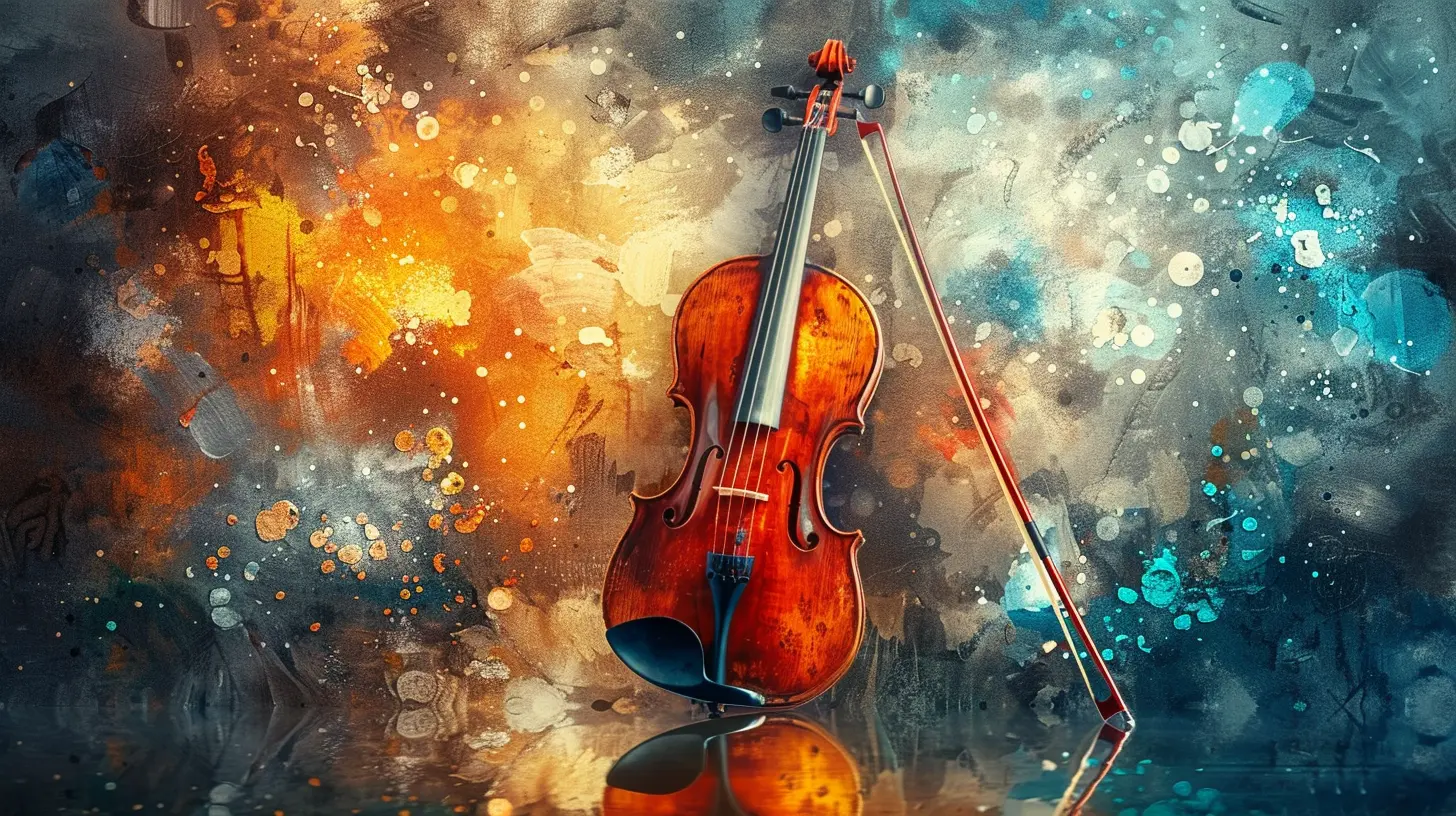
The Benefits of Music Education on Creativity
So, how exactly does music education benefit students in unlocking their creative potential? Let’s break it down.1. Boosts Confidence and Self-Expression
Playing an instrument or singing in front of an audience requires confidence. Music education encourages students to express themselves without fear of judgment, leading to a stronger sense of self-assurance.2. Encourages Collaboration and Teamwork
Music is often a group activity, whether it's playing in a band or singing in a choir. This collaboration fosters teamwork, communication, and the ability to work towards a common goal—all crucial skills for creative projects.3. Improves Focus and Discipline
Mastering an instrument or perfecting vocal techniques requires perseverance, dedication, and patience. These qualities not only help students in music but also in academics and other creative fields.4. Bridges the Gap Between Art and Academics
Ever heard of the "Mozart Effect"? Studies suggest that listening to classical music can enhance brain function and improve performance in subjects like math and science. Music education helps bridge the gap between artistic creativity and logical thinking.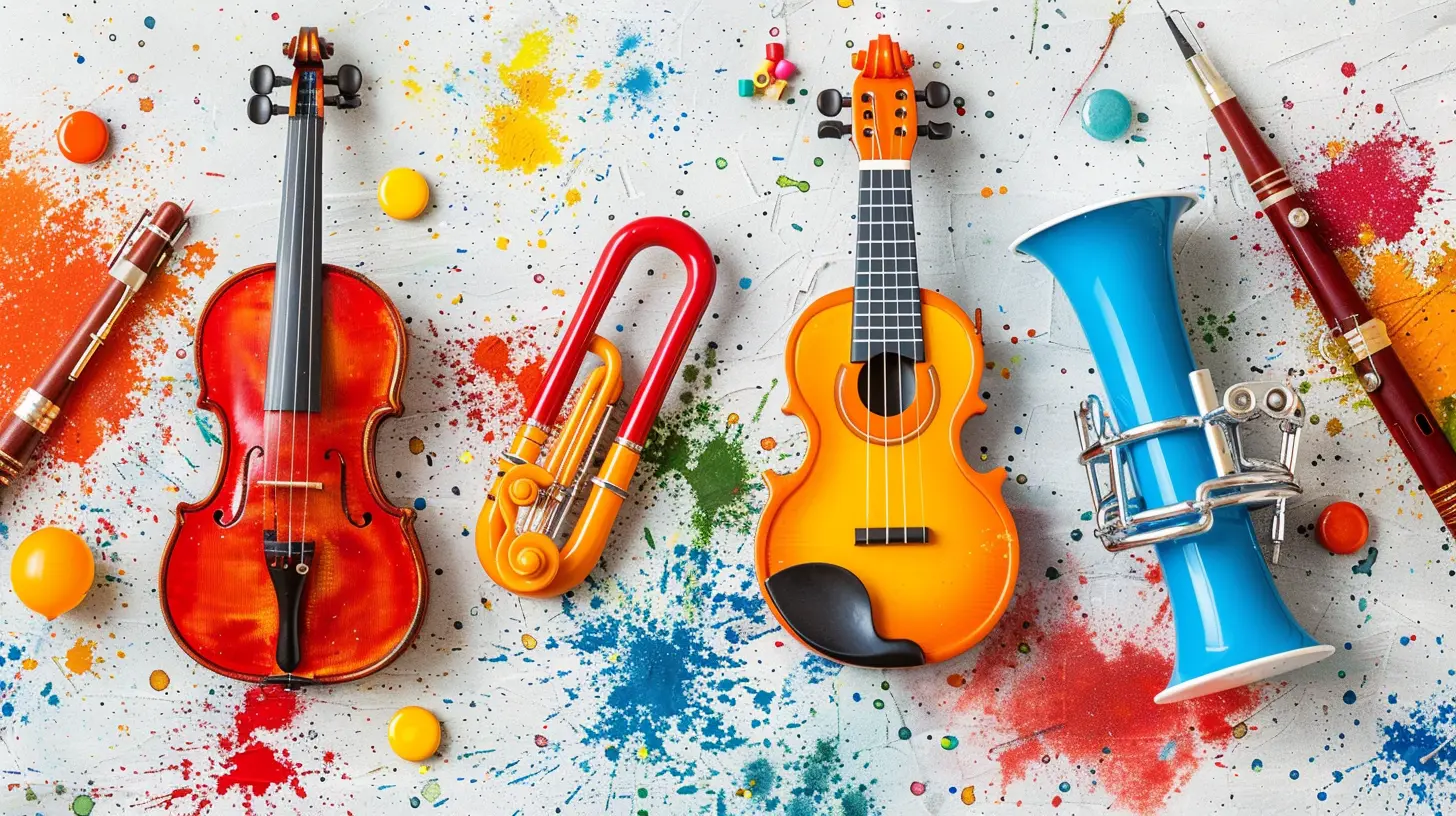
How Music Sparks Innovation
Creativity isn't just about art; it's about innovation. Many groundbreaking ideas come from creative minds that think differently.Take Albert Einstein, for example. He was not only a brilliant physicist but also a skilled violinist. He often turned to music when stuck on complex problems, allowing his brain to relax and approach challenges with a fresh perspective.
Similarly, many entrepreneurs and scientists credit music as a source of inspiration. It encourages abstract thinking, allowing individuals to view problems from multiple angles.
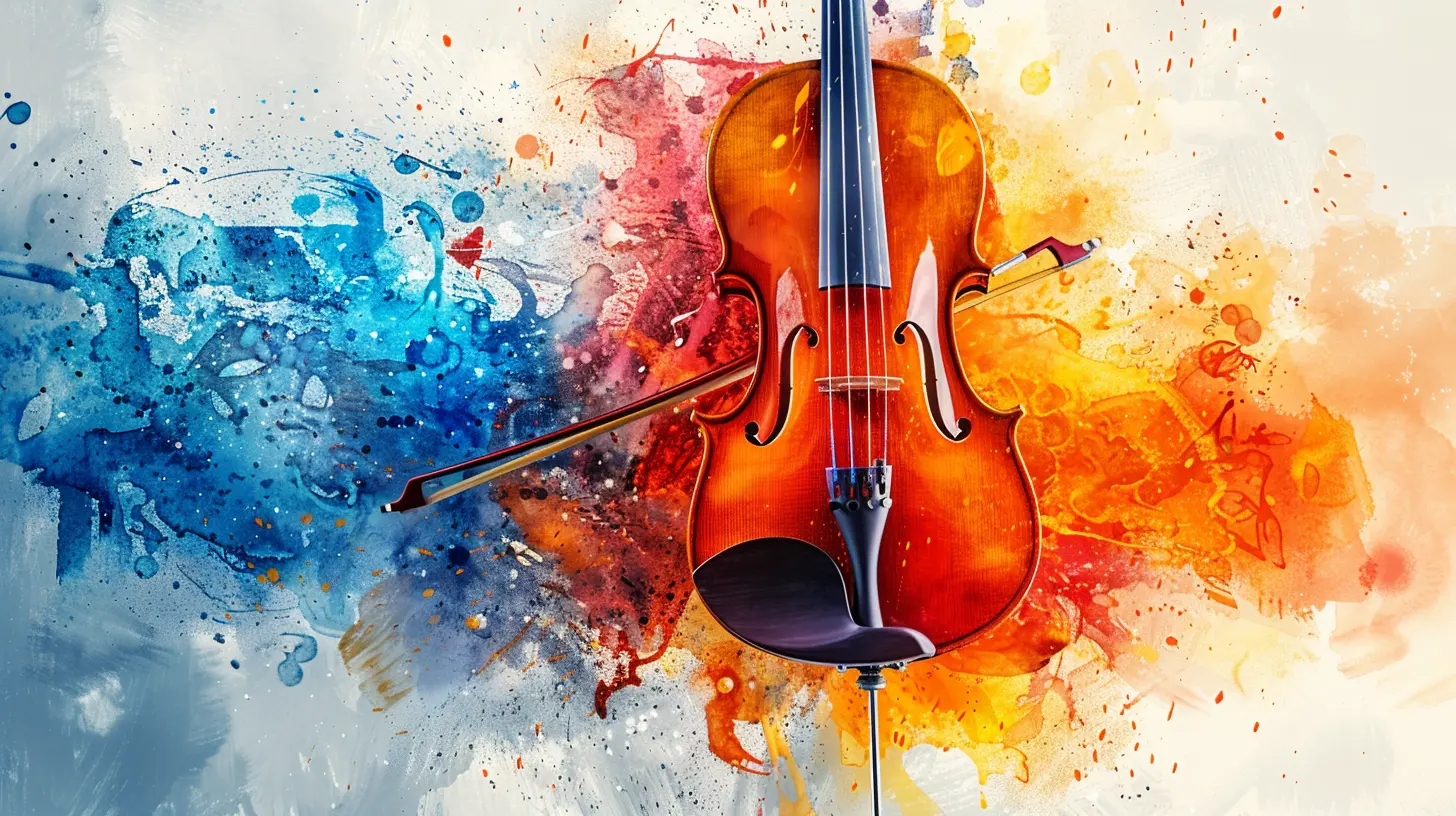
Ways to Incorporate Music into Education
Bringing music into education doesn’t mean every student has to become a professional musician. Simple, everyday exposure can make a difference. Here are some practical ways schools and educators can incorporate music into learning:1. Integrate Music into Lessons
Teachers can use songs to teach concepts, whether it's using rhythm to memorize formulas or singing historical events through musical storytelling.2. Encourage Instrument Learning
Providing opportunities for students to learn instruments, even basic ones like the ukulele or keyboard, allows them to experience music firsthand.3. Promote Music-Based Creative Activities
Activities like songwriting, composing, or even freestyle rap challenges can boost students' creative thinking and self-expression.4. Use Background Music in Classrooms
Soft instrumental music in the background can improve concentration and create a calming environment conducive to creativity.5. Support School Music Programs
Investing in school orchestras, bands, or choirs encourages students to engage with music beyond the classroom setting.Music Education: A Path to a Brighter Future
Music education isn't just about producing musicians; it’s about developing creative thinkers who can approach life with curiosity and innovation. It enhances problem-solving skills, fosters emotional intelligence, and builds confidence—all crucial for both personal and professional growth.So, the next time you hear a tune playing, take a moment to appreciate the creative spark it brings. Whether you're a student, teacher, or parent, embracing music education can lead to a future filled with endless possibilities.
all images in this post were generated using AI tools
Category:
Music EducationAuthor:

Eva Barker
Discussion
rate this article
1 comments
Madalyn Navarro
This article compellingly highlights the transformative power of music education in fostering creativity. However, it could further explore the disparities in access to quality music programs across different demographics, emphasizing the need for equitable opportunities that can truly unlock creativity for all students, regardless of their background.
November 1, 2025 at 3:39 AM

Eva Barker
Thank you for your insightful comment! I appreciate your suggestion and will consider highlighting disparities in access to music education in future discussions to emphasize the importance of equitable opportunities for all students.
